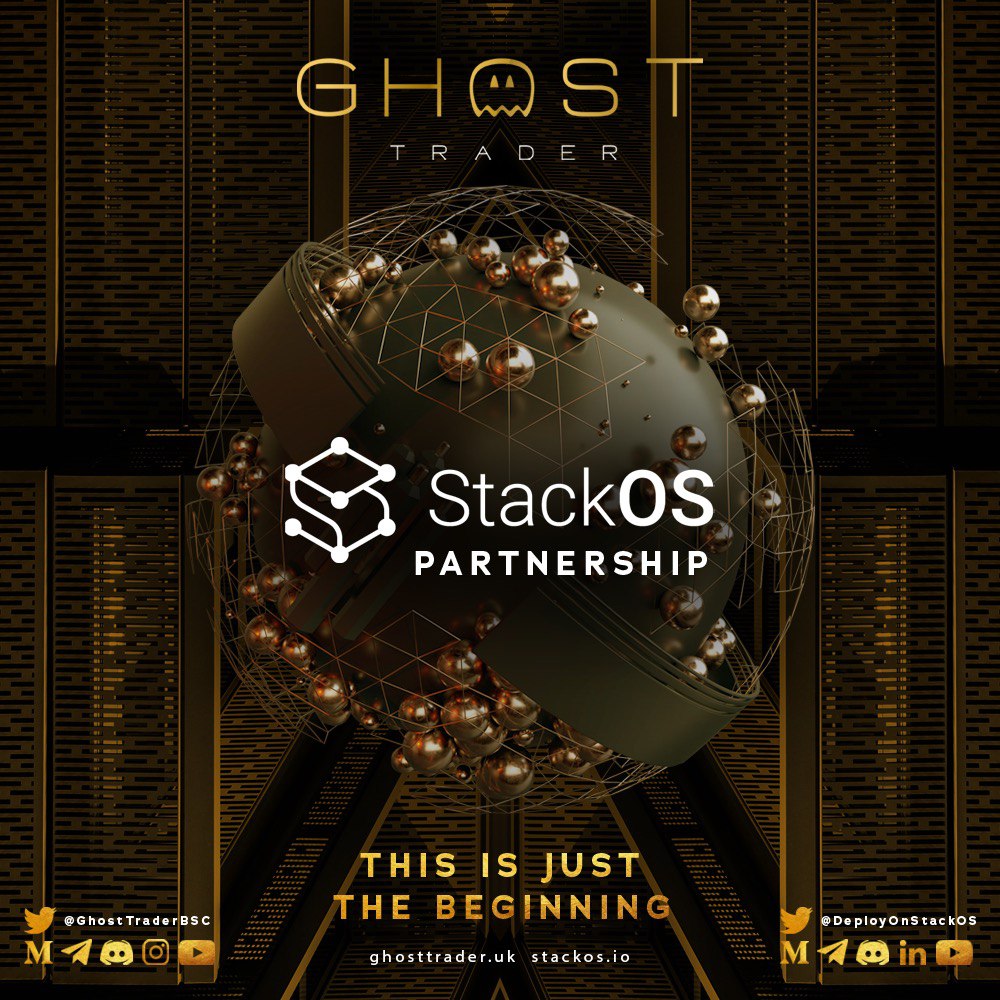Ghost Trader prides itself on being ahead of the curve, establishing the new standard for the financial technology (FinTech) industry. This dedication to blazing new trails extends to the technology they employ. From both a Decentralized Finance (DeFi) and Information Technology (IT) platforms perspective, Ghost Trader pushes the envelope to deliver the most advanced functionality to our contributors. Ghost Trader’s partnership with StackOS provides the tools to do just that.
There are some serious benefits to this partnership. StackOS provides an advanced platform for running decentralized infrastructure that also enables the conveniences and tools that developers have come to expect. StackOS’ own aim, to provide “the unstoppable infrastructure protocol” makes this partnership ideal for DeFi. DeFi, in order to be successful, must provide reliability and flexibility, above all. StackOS provides that reliability and flexibility. It is precisely those characteristics that give Ghost Trader the stability and agility to build out Ghost Trader’s overall coding with the features necessary for the project to expand.
StackOS is a cross-chain open protocol that provides the tools necessary to establish and maintain decentralization, as well as quick deployment of full-stack applications, decentralized apps, and other utilities. StackOS has the added benefit of being cost-competitive — unbreakable anonymity at a reasonable cost. As a result, Ghost Trader enjoys all the robustness of solid decentralization, as well as the flexibility to develop as well.
The platform itself is built around Docker and Kubernetes. Application code can be bundled with dependencies into containers. These containers can then be deployed and hosted quickly and easily. All of these functions can be accomplished without worrying about dependency conflicts, availability management, or host OS patching outages.
The Ghost Trader team managed to take existing backend infrastructure and migrate it to run on StackOS in only a matter of days . This was largely due to Ghost Trader systems already leveraging containers — meaning that the applications were portable enough to run without issues. Additional time was then spent optimizing the applications to run in a decentralized manner.
Ghost Trader intends to continue the migration, with the remaining backend and automated services being first on the list. This partnership will provide Ghost Trader the important development tools moving forward to reach and surpass all of its goals, while also providing future flexibility for further project development. The partnership between Ghost Trader and StackOS will lay the foundation for the DeFi revolution. They will build the future, together.




